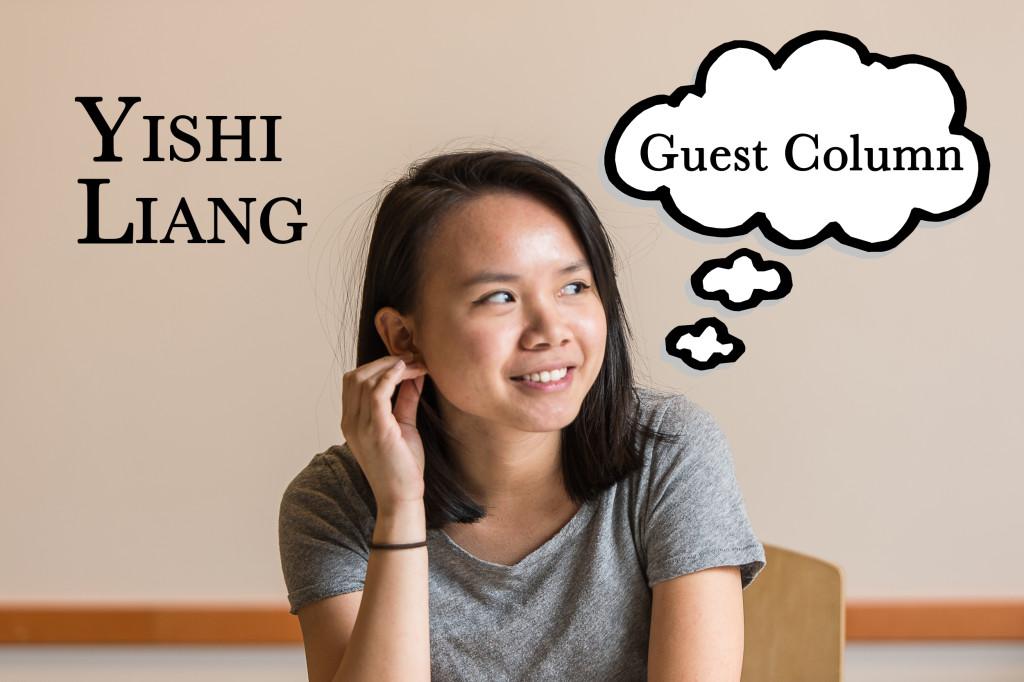Guest column by Yishi Liang
liangyis@grinnell.edu

On Feb. 10, 2016, a New York City police officer was indicted for the killing of an unarmed black man, Akai Gurley. Given the recent high-profile failure to indict the officers responsible for the shooting of Michael Brown and Eric Garner, you would think everyone would express a feeling that this was a step in the right direction for addressing police brutality. But the case was complicated by the fact that the indicted police officer was Peter Liang, a Chinese-American. Many Asian-Americans are outraged by the decision and have planned a protest of the indictment on Feb. 20. The general sentiment of the protesters is that Officer Liang is being used as a scapegoat, and had he been white, he would not have been indicted. I think both of these points are valid, but I also think that this logic is deeply flawed and fails to challenge larger systems of oppression and institutionalized racism.
There are a number of details being debated in this case, from the bullet ricocheting off a wall to the length of deliberation between Officer Liang and his partner before calling an ambulance. For the sake of being concise, I’m not going to get into it. This case bears many similarities to the fatal shooting of Timothy Stansbury, when NYPD Officer Richard Neri was patrolling a New York City housing project and shot his gun after being startled. But in that case, the police officer was white and the shooting was ruled accidental. The same system that gave Officer Neri and countless other officers a slap on the wrist after wrongfully killing unarmed civilians found Officer Liang guilty of second-degree manslaughter. So the protesters are right. The judicial system probably chose to make an example of Officer Liang. Even with all this in mind, I do not think Asian-Americans should protest for Officer Liang’s innocence on the sole logic that white officers have not been held responsible so neither should he.
Basing activism purely on “identity politics” can often become misguided. And it can make someone a great activist but a terrible ally. I admit, I can’t help but feel a sense of affiliation to Officer Liang, who also immigrated to the U.S. as a child and comes from a working-class background. I mean, we even have the same last name. But I’m forcing myself to compartmentalize my sense of affiliation and empathy from my politics, and I’m asking everyone to do the same. I’m asking Asian-Americans protesting this decision to stand in solidarity with the Black Lives Matter activists against institutionalized racism and police brutality. I’m asking people of color (POC) to not let this verdict discourage them from entering the police force, as the makeup of the police should always match the makeup of the people they are policing.
But, I’m also asking everyone who is dismissing the outrage and injustice expressed in the Asian-American community to do some research on the historical scapegoating of Asians, Asian-Americans and Pacific Islanders (AAAPI). I’m asking all POC and their allies to recognize that the issues pertaining to AAAPI, though distinct, are legitimate and worth discussing on a national level. And this can go on and on. (I’d also ask that people be outraged that Coldplay, a repeated offender of orientalism in its music videos, got to play this year’s Super Bowl halftime show. But that’s a separate editorial.) Ultimately, I’m asking everyone to stand together against a broken system that protects so few. I’m asking that justice be served rather than privilege extended.
No one should be satisfied with this indictment. Because at best, it is a reactionary verdict that brings justice for the death of one man and could create a legal precedent that holds all police officers accountable. But in reality, the verdict reinforces the failures of past cases. It is being misguided into a narrative about AAAPI scapegoating, and the subsequent backlash to the verdict perpetuates anti-blackness. And none of this challenges the larger structures of power and white supremacy at play.
If you think Officer Liang was wrongfully tried given the evidence at hand, that’s one thing. But if you think an Asian-American officer should not be indicted because our judicial system failed to indict white officers, then you are supporting a system that dismisses police brutality. Yes, if Officer Liang were white he probably wouldn’t have been indicted. But if Akai Gurley weren’t black (and poor) he probably wouldn’t have been living in one of the most dangerous housing projects in New York City. Neither of these scenarios should be the case. Officer Liang should be held responsible for his actions and Officer Darren Wilson and Officer Daniel Pantaleo should have been as well. The system has failed us all, and justice that is circumstantial is not true justice.
—Editor’s Note: Yishi Liang is Editor-in-Chief of The S&B.





























































Esther • Feb 23, 2016 at 9:39 pm
http://caaav.org/justiceforakaigurley-national-sign-on-letter
Sue • Feb 20, 2016 at 9:32 pm
thought-provoking points of views!
Robert Lock • Feb 20, 2016 at 6:48 pm
Yes the system has failed us. I believe Officer Liang should have been found Not Guilty They have used this poor man as a scapegoat. Yes the system has failed us. The police departments have failed us the government has failed us. Do not allow them to get away with this using this man and his family as –Scapegoat Shame on them Shame